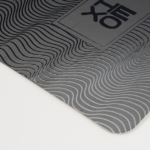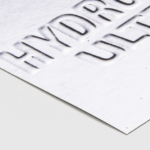In today’s environmentally conscious market, biodegradable packaging is no longer optional for businesses—it’s a strategic necessity. As consumers and regulators demand greener solutions, adopting eco-friendly packaging positions companies as leaders in sustainability. This article explores the critical role of biodegradable materials, their benefits for businesses, and why transitioning now is vital for long-term success.

What Makes Packaging Truly Biodegradable?
Biodegradable packaging refers to materials that naturally decompose through microbial action, sunlight, or moisture exposure. Unlike conventional plastics that persist for centuries, these materials break down into harmless organic compounds. Common examples include plant-based polymers (e.g., cornstarch), recycled paper, and compostable films. By prioritizing eco-friendly packaging, businesses directly address global pollution challenges while meeting consumer expectations.
Why Should Businesses Prioritize Eco-Friendly Packaging?
The shift to biodegradable packaging isn’t just about environmental responsibility—it’s a smart business decision. Here’s why:
- Align with Consumer Values
Modern shoppers increasingly support brands that reflect their ethics. Using eco-friendly packaging builds trust and loyalty, as customers associate sustainability with transparency and quality. - Stay Ahead of Regulations
Governments are tightening restrictions on single-use plastics. Proactively adopting biodegradable packaging ensures compliance and avoids potential penalties or operational disruptions. - Reduce Long-Term Costs
While initial investments may be higher, biodegradable materials lower waste management expenses over time. For example, compostable packaging eliminates landfill fees and supports circular production models.
Key Benefits of Biodegradable Packaging for Businesses
Understanding the benefits of biodegradable packaging for businesses clarifies its competitive edge:
- Enhanced Brand Differentiation: Stand out in crowded markets by showcasing eco-conscious practices.
- Improved Supply Chain Efficiency: Lightweight biodegradable materials can reduce shipping costs and carbon footprints.
- Future-Proof Operations: Align with global sustainability goals (e.g., UN SDGs) to attract investors and partners.
Why Choose Biodegradable Packaging Over Conventional Options?
When comparing biodegradable packaging to traditional plastics, three factors dominate:
- Environmental Impact: Rapid decomposition prevents soil and ocean contamination.
- Versatility: Advanced biodegradable materials now match the durability and functionality of plastics.
- Customer Appeal: Over 60% of consumers actively seek brands with sustainable packaging, making it a revenue driver.
Implementing Biodegradable Packaging: A Step Forward
Transitioning to eco-friendly packaging requires careful planning:
- Audit Current Packaging: Identify replaceable materials (e.g., plastic wraps, polystyrene).
- Partner with Certified Suppliers: Ensure materials meet international standards (e.g., FSC).
- Educate Stakeholders: Communicate the shift’s benefits to employees, customers, and investors.
The Sustainable Path to Business Growth
Biodegradable packaging is a cornerstone of modern eco-friendly business strategies. By reducing environmental harm, strengthening brand reputation, and aligning with regulatory trends, companies that adopt these solutions today will lead tomorrow’s sustainable economy.



